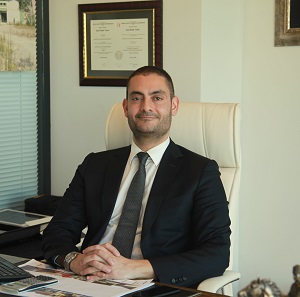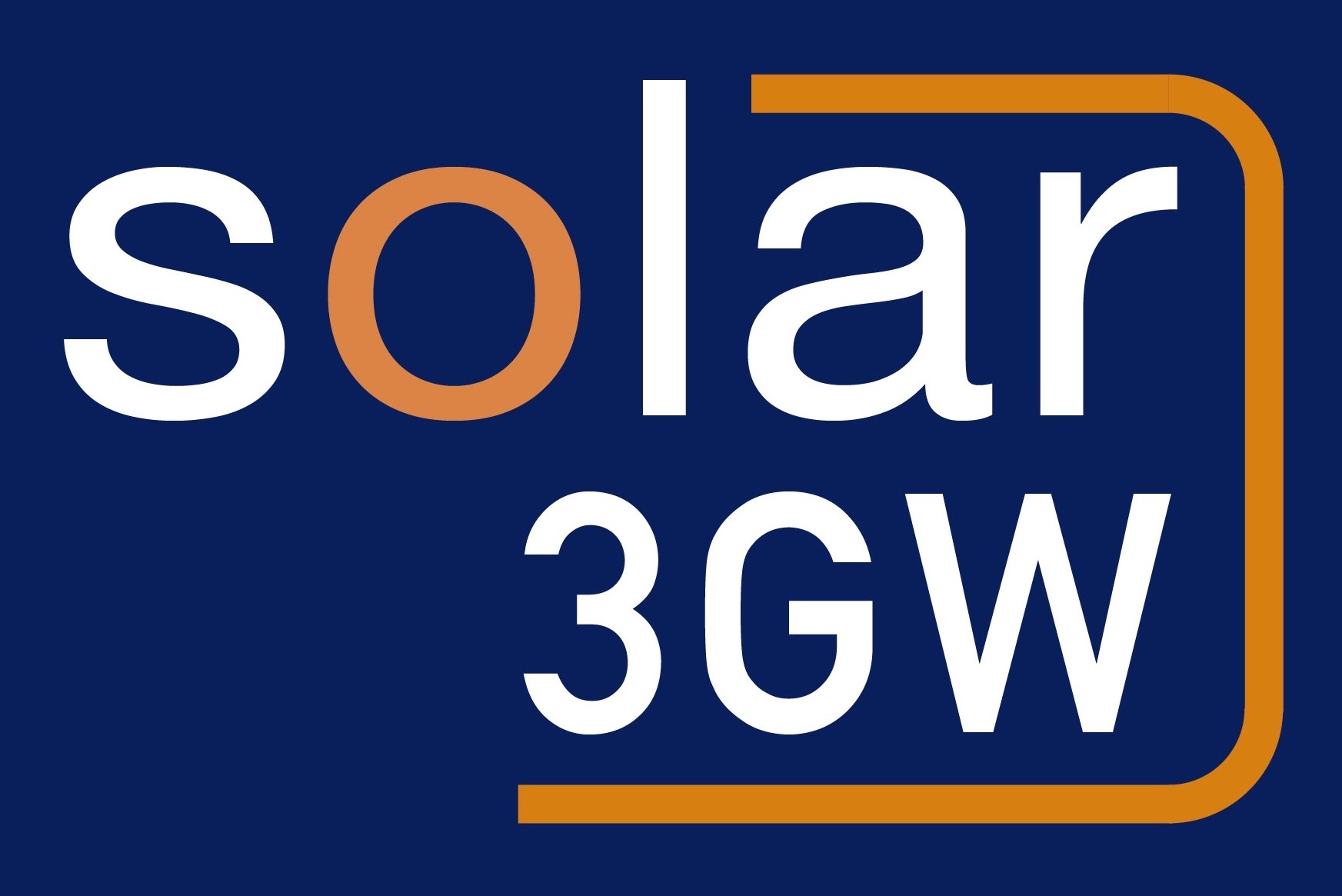
Solar3GW, a brand new think tank in the renewable energy sector, aims to solve the climate crisis by using renewable energy; electricity generation, have met awareness that should be the only source of transportation and space heating Turkey was founded by solar energy sector stakeholders. We wanted to get to know Solar3GW, which aims to produce ideas and solutions by forming a consensus with its members and to ensure the transparency of accurate and impartial information in the sector, and we talked with Solar3GW President Yusuf Bahadır Turhan.
Who is Solar3GW? When was it founded and by whom?
As Solar3GW, we are a think tank. Although we are officially established with the identity of an association in order to be dealing with public institutions, our main goal is to create ideas and solutions by forming a consensus with our members and to ensure the transparency of accurate and impartial information in our sector, unlike the existing associations.
Solar3GW, to solve the climate crisis, renewable energy; electricity generation, have met awareness that should be the only source of transportation and space heating Turkey was founded by solar energy sector stakeholders. Although it was officially established in August 2020, as our founding board of directors, we started our work as of April.
Who are the Solar3GW stakeholders?
Our stakeholders are not any specific segment of the industry, but the entire industry. Because, we act with the awareness that the development of the entire sector, including the public side, means the development of all parts of the sector in reality. Therefore, we aim to cover the entire solar energy sector, not a limited segment.
Could you give information about Solar3GW’s work?
As a think tank, our work is the development of the sector; Our goal is to find solutions consistent with all technical, economic, sociological and legal aspects in order to add 3 GW of solar power to our electricity generation mix every year. We come together in this direction and brainstorm, then we turn the results into regular reports. We share our report with the public and the public without expecting any response. Then, we get in touch with government agencies to lobby the ideas here. Our “3 GW SPPs – Why It Is Necessary and How It Is Possible” report, which draws a main road map in this direction, is to be brought to the attention of all sector stakeholders. This report will be followed by our business models report, which is our proposal for solar installations for the next 10 years, and our indigenousization report, which will include our proposal for indigenization in solar equipment. In summary, we are working to produce solutions that will ensure the development of all stakeholders in the sector together, and report them to the public and the public. Meanwhile, we present new legislative draft proposals as well as presenting opinions to existing drafts. In this context, we presented an opinion to the draft YEK-G Regulation.
What are the goals of Solar3GW?
Our aim is to identify the obstacles to the implementation of the concepts of electricity generation from solar energy, electric vehicles, energy digitalization in our country on the basis of raising awareness about the climate crisis, to eliminate them and to ensure that solar energy, which we consider indispensable for a modern electricity grid and market design, is justified in this design. to develop the solutions needed to replace it with all its aspects. Then, to present these solution proposals in reports to both the public and the public. Making necessary contacts and promotions in the public for their implementation. With this aspect, our main motto is to add “3 GW of solar power every year” to our electricity generation mix in the next 10 years. In this way, to create a sustainable business opportunity for the sector. We believe that our greatest contribution to the sector will be to transform our sector into a structure that is modern, competitive, fair and develops the entire sector for the benefit of all stakeholders of the sector when we achieve our goals.
You say “Our target is 3 GW of installed power in the sun every year”. What kind of works will you do to realize this?
We are a think tank, so we will generate ideas. Through the surveys and researches we conduct among our members, we will identify the problems of the sector and, again, in line with the opinions of our members, we will produce solutions for the common benefit of each stakeholder, regardless of whether they are big or small. We will reveal the application methods of the solutions in terms of both technical and legislation. We will organize all of these studies in reports that are open to everyone. And of course, we will promote these reports to the public and the public through meetings, panels and articles. Within the framework of the consciousness we will create in this way, we aim to influence the legislation and energy policy. Our main goal, the benefit of the whole, is to put the country’s energy policy on a foundation that will develop the entire sector together. For this, we will work voluntarily with all our good intentions and efforts.
What would you say to the world if we compare Turkey with about solar energy? Turkey is located where the energy revolution?
Although solar installations were made in our country before 2013, they remained at low volumes due to the costs of solar technology. Solar energy in Turkey principal made a good start in 2013, we think. In 2013, both the unlicensed regulation and the applications received for 600 MW capacity on the licensed side, and the fixed price guarantee of 13.3 dollar cent / kWh, which seemed to be enough in those years, quickly accelerated the sun. However, with the legislative changes made in 2017, the acceleration in the sun decreased, and the addition of new capacity in 2020 came to a standstill. While the only measure taken against its halt was the amendment of the regulation on self-consumption in 2019, all other legislation unfortunately slowed down the solar industry. Therefore, when we compare it with the world, we have moved quite well until 2017, after this year we started to break from the energy revolution in the world. Our country has turned to nuclear and coal-fired thermal technologies, which are now abandoned in the world, where relevant facilities are closed one by one and existing ones are scheduled to close. On the other hand, while the world brings the distributed generation, generating consumers, microgrids to the forefront and makes its grid more efficient, our country follows the opposite path with the YEKA model in renewable energy, and to include renewable energy plants in a central structure like thermal power plants. went his way. In this sense, we think we are not where we should be right now in the energy revolution.
As Solar3GW, we aimed to understand the energy revolution in the world and to explain what we understand to both the public and the public with our reports that we have provided with accurate and unbiased information. Designing a modern electricity grid and market is essential for us to reach the level of developed countries. For this, we need to create awareness and work on distributed generation, generating consumers, battery storage, micro grids. Especially with the return of battery storage costs, storage solar power plants that provide base load will be built within 5 years; the world is working in this direction; We will also work for the implementation of this in our country.
Finally, do you have anything else to add?
We, as Solar3GW, consider it NECESSARY but technically and economically POSSIBLE to add 3 GW of solar power each year to our electricity generation mix. We even think that this goal is indispensable for our country to reach the level of modern civilizations set by its founder, Mustafa Kemal Atatürk. This is an economic necessity for us to approach the developed countries class from the developing countries class in the next 10 years. On the other hand, it is our most important responsibility to leave a healthy environment and therefore a healthy life to the new generation that is growing. We invite all stakeholders in the sector who think like us in these matters, who are aware of the fact that the rise of the whole together means its own rise, and who are aware that putting the welfare of the whole at risk for their personal interests means cutting the branch they are riding to become our members and contribute us with their ideas.
